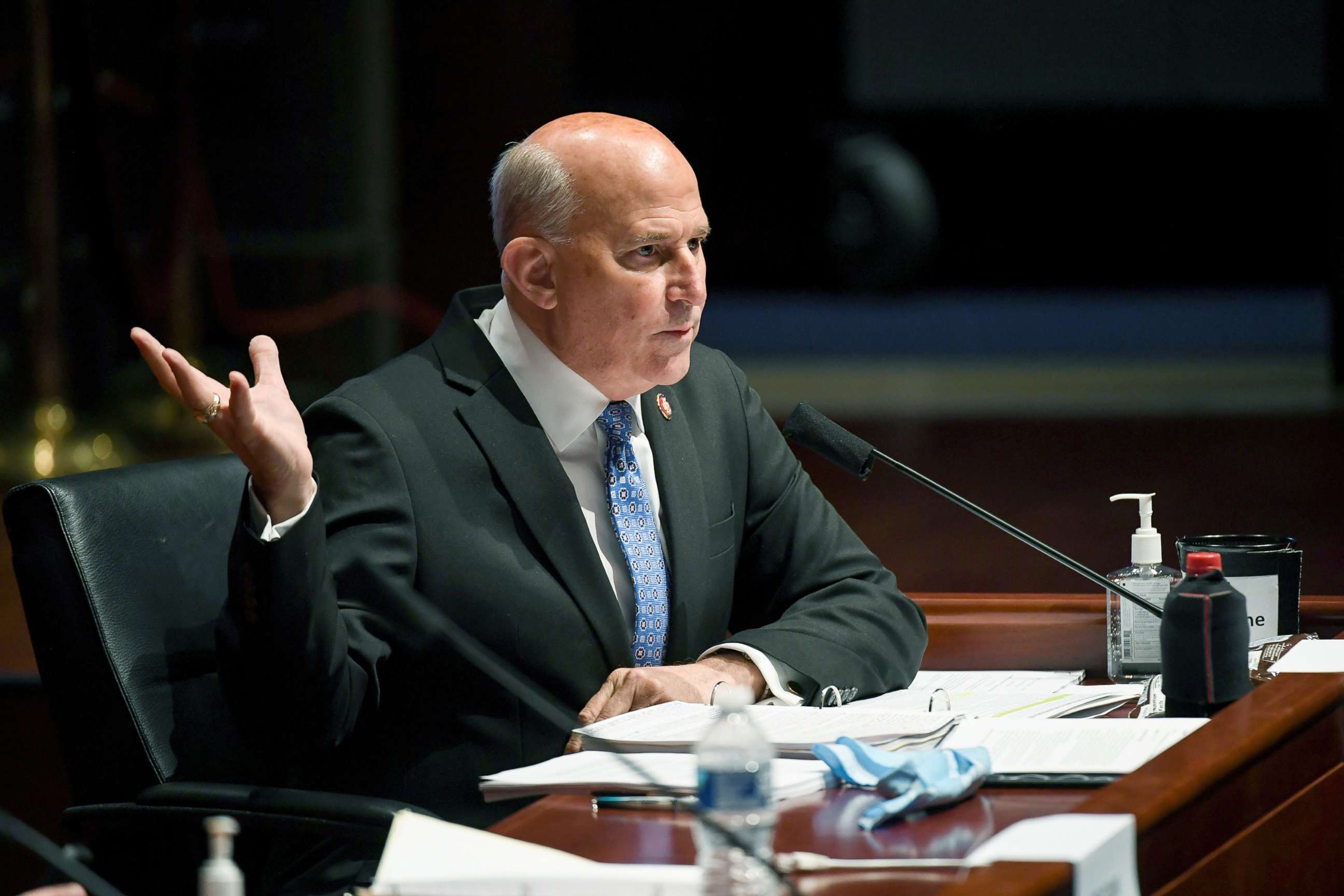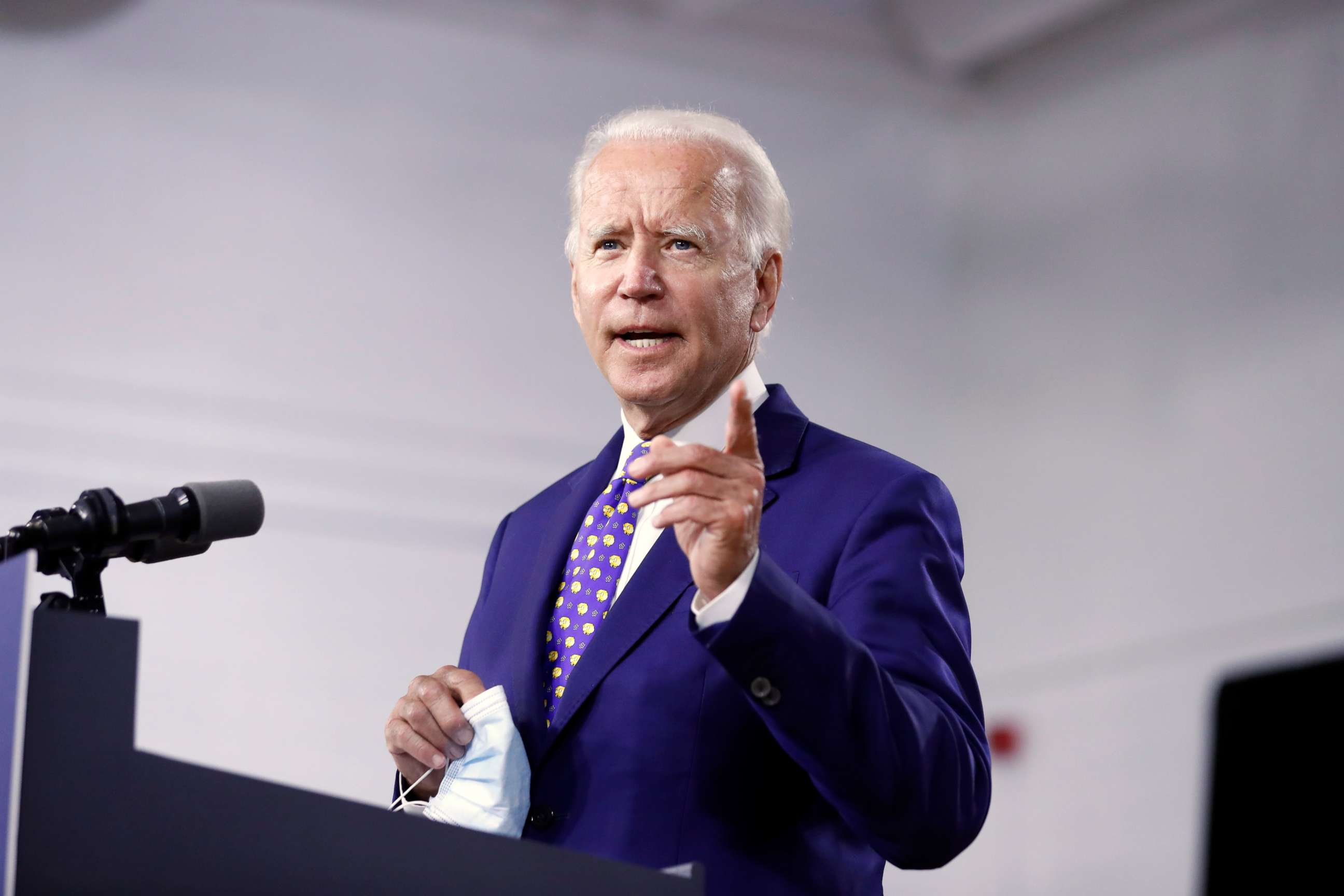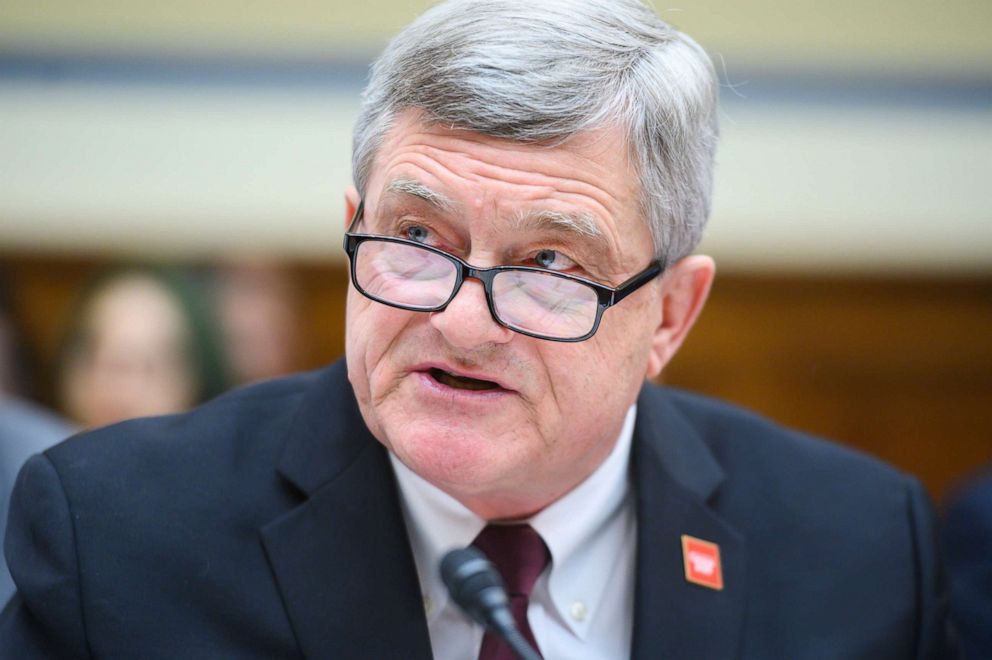The Note: 5 months into pandemic and mixed signals still dominate Washington
It is increasingly unclear if members of Congress feel safe coming to work.
The TAKE with MaryAlice Parks
It is increasingly unclear if members of Congress feel safe coming to work.
Congressman Louie Gohmert, R-Texas, told his staff and the public on Wednesday that he had tested positive for COVID-19. He came back to Capitol Hill after receiving the results, potentially exposing dozens along the way.
Though he did at times oblige, Gohmert had frequently ignored and ridiculed calls to wear masks. His staffers were allegedly teased when they wore masks themselves. While colleagues are undoubtedly worried for him, his attendance at two large hearings this week and his attitude toward the virus left many worried for their own health and the safety of their staffs too. While Speaker Nancy Pelosi announced a new mask mandate on the House floor in response to the news, both she and Senate Leader Mitch McConnell faced public calls from some members to work with the administration to provide rapid tests on Capitol Hill.

Gohmert's public skepticism toward masks -- widely recommended by health officials -- dovetails with other mixed signals and dubious claims out of Washington.
President Donald Trump has briefed at the White House more this week, but the result has led to more confusion and contradiction between himself and other government leaders.
Dr. Anthony Fauci, the administration's top official on infectious diseases, has spent the last 36 hours repeatedly telling news outlets that, no, there is not any credible, scientific evidence showing that hydroxychloroquine is an effective treatment for the coronavirus, despite the president's insistent claims and commentary.
The Food and Drug Administration last month pulled permissions for emergency use of the drug and recommended against using it for COVID-19 patients, but that has not stopped Trump from tweets and others in his team from giving confusing, speculative shrugs about the drug.
The back and forth on this underscores a much larger issue: that the American people still cannot get reliable, fact-based information from Washington more than five months into this public health crisis.
The RUNDOWN with Kendall Karson
Joe Biden's need to restore the blue wall appears to be overshadowed by his recent focus on the Sun Belt.
But expanding the battleground map into states like Arizona and Texas -- and retaking Florida -- will prove fruitless without making gains with Latinos, the nation's fastest growing electorate. The success of the country, the former vice president said during a virtual conversation with UnidosUS, depends on the acceptance of the Latino community, who he said need to be "dealt in" to every major decision.
"The future of America depends upon the total, full, thorough integration and acceptance and embrace of the Latino community. That's not -- that's not hyperbole. It's real," he told the country's largest Latino nonprofit advocacy organization, which endorsed him on Tuesday. "Your support is going to be critical ... I'm going to need your help because the Latino vote is essential in winning this election and making sure that Donald Trump is a one-term president."

The event coincided with the Biden campaign releasing a new Spanish-language ad in Arizona and Florida, a signal of Biden's pivot toward aggressively courting Latino voters, a bloc that Democrats arguably took for granted in 2018, when two key statewide races in Florida narrowly tilted in Republicans' favor.
Those outcomes, and continued questions about the effectiveness of Biden's outreach to Latinos, linger over his campaign.
The success of Biden will depend on how much he is willing to bring Latinos to the table, and how much they will accept him. The soon-to-be nominee has said his cabinet will reflect the country, and that Latinos will be represented in his administration, but when it comes to his No. 2, the list of Latinas under consideration is light.
New Mexico Gov. Michelle Lujan Grisham might be the only Latina left in contention, after Sen. Catherine Cortez-Masto, D-Nev., took herself out of the running and some other possible prospects faded into the background. Biden has also faced increasing pressure in the lead up to his highly-anticipated decision, which he said he aims to make by next week, to select a Black woman. His announcement is expected before the Democratic National Convention next month.
A Latina on the ticket could bolster Biden's electoral success with this group, particularly from the primary, when he had lackluster support among Latino voters, who preferred his chief rival, Sen. Bernie Sanders. Biden currently enjoys a comfortable lead over Trump among this demographic, according to a recent national poll, but he's still trailing Hillary Clinton's 2016 margin by about eight points, a deficit he will likely seek to close in the coming months.
The TIP with Stephanie Ebbs
Republicans and Democrats questioned Steven Dillingham, the head of the Census Bureau, Wednesday about the president's order last week to exclude undocumented immigrants from census data used to determine congressional representation. He said he couldn't offer his personal views, but said his priority is conducting a 2020 census that counts everyone, even after four former census directors testified they believe the order is unconstitutional and impossible to implement without asking about citizenship status.
Members of the House Oversight Committee fell along party lines when it came to the president's order last week. Republicans argued in support of the order, saying non-citizens should be counted in the census, but not included when redrawing congressional districts, implying it gives too much power to states with more undocumented immigrants and even incentivizes illegal immigration.

Democrats blasted the president's decision, invoking the racial implications and concerns that it will make it harder for immigrant populations already skeptical of the federal government to be counted. Multiple members pointed out the Constitution says the government should count the "whole number of persons in each state" -- not citizens -- language that was changed from the original version of the Constitution that counted slaves as three fifths of a person.
Ultimately Dillingham emphasized that the president's order will not impact how they carry out the census and that they still plan to count everyone who resides in the United States, regardless of their citizenship status. But he also said the Census Bureau does not set policy and they will follow any legal decisions in challenges to the order that have already been filed and are in the process of determining how they could carry out the order if it is upheld.
THE PLAYLIST
ABC News' "Start Here" podcast. Thursday morning's episode features ABC News Chief Global Affairs correspondent Martha Raddatz, who explains why experts are worried the Trump administration's move to pull U.S. troops from Germany will embolden Russia. ABC News Senior Congressional correspondent Mary Bruce tells us why Rep. Louie Gohmert's positive COVID-19 test is prompting wider questions about safety on Capitol Hill. And, ABC News Senior National correspondent Terry Moran dissects President Donald Trump's play for the "suburban" voter. http://apple.co/2HPocUL
ABC News' "Powerhouse Politics" podcast. Sen. Tammy Duckworth, D-Ill., the sole contender on presumptive Democratic nominee Joe Biden's shortlist for vice president with military combat experience, told ABC News Political Director Rick Klein that she believes the intelligence indicating that Russia put bounties on the heads of U.S. troops is "very credible" -- directly refuting President Donald Trump's assertion of "fake news." https://bit.ly/2w091jE
WHAT YOU NEED TO KNOW TODAY
Download the ABC News app and select "The Note" as an item of interest to receive the day's sharpest political analysis.
The Note is a daily ABC News feature that highlights the key political moments of the day ahead. Please check back tomorrow for the latest.



